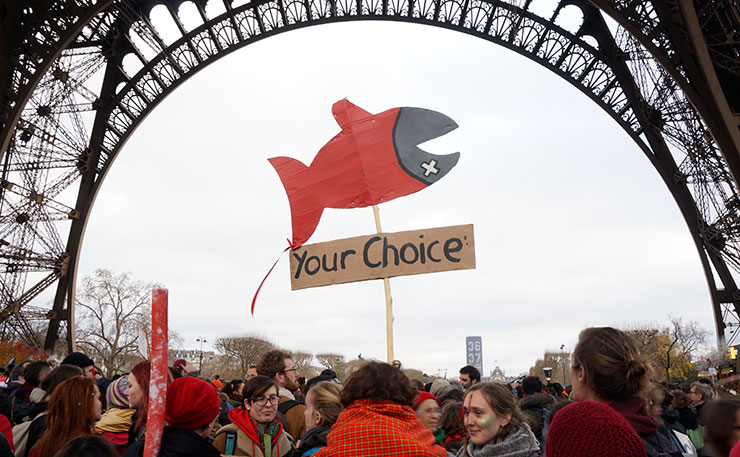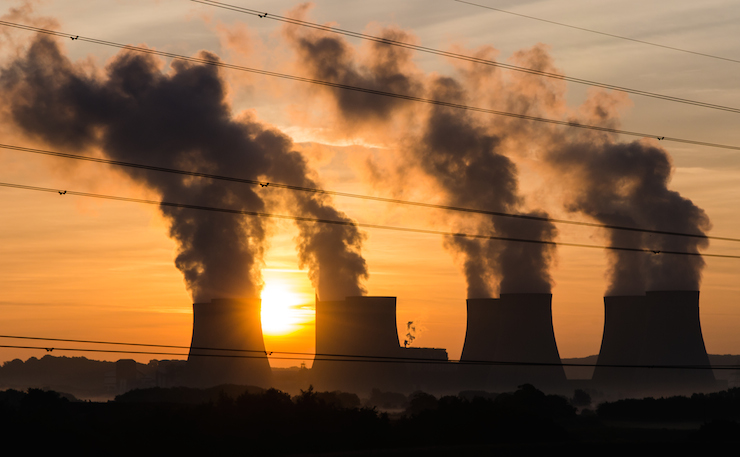This month, the first ever agreement to combat global climate change will be signed at the UN headquarters in New York.
Australia has agreed to join with the rest of the world to limit global warming to two degrees. Despite this, our Government is acting as though nothing has changed. A global agreement is only as valuable as the effect it actually has on what it sets out to change.
Unfortunately for Australia, the current government haven’t honoured the agreement in anything more than words. Indeed, since signing the agreement, Australia has re-approved one of the world’s largest coal mines, opened a new research centre for the fossil fuel industry, and cut funding for renewable energy. Unfortunately, the list doesn’t end here.
Given that Government is failing in its responsibility to take decisive action against climate change, other more public-spirited institutions are leading the way.
We have already seen many steps in the right direction from universities and local government across Australia. Last year the Australian National University partially divested from fossil fuels, and the Australian Academy of Science, the City of Melbourne and Newcastle council have also committed to fully divest from fossil fuels.
My own university – Swinburne – has adopted a Responsible Investment Charter that requires the university to consider the social and environmental impacts of all its investments. As a result, Swinburne is currently in the process of obtaining a fund manager that will be able to manage investments that are not tainted by fossil fuel extraction or coal power generation. Also off the list for Swinburne are investments in the other pernicious industries of tobacco production, cluster munitions and anti-personnel landmines.
Although this change in investments cannot happen overnight, Swinburne is likely to become the first university in Australia to have fully divested from fossil fuels. Many people are working tirelessly behind the scenes to make sure this happens.

As a strategy and a movement, fossil fuel divestment has exploded in the last year with over 500 institutions and thousands of individuals across 43 countries, representing $3.4 trillion in assets, committing to withdraw all investments in oil, coal and gas. The strategy of divesting from fossil fuels aligns perfectly with the type of university that Swinburne aspires to be, a public spirited and trustworthy institution demonstrating accountability, integrity and sustainability.
There are both ethical and financial arguments in favour of fossil fuel divestment. The ethical case is compelling and sobering. There are far more reserves of fossil fuels in the ground than can be burned if there is any hope of keeping global warming to a level that will avoid catastrophic climate change.
NASA scientist, James Hansen put it more plainly when he said that if all the fossil fuels that are in the ground are extracted and burnt it is “game over” for human life on Planet Earth. Even so, companies across the world are on a last-ditch effort to makes as much money as they can through extraction of oil, coal and gas before the whole industry collapses.
At sites like the Alberta tar sands in Canada, companies have an incentive to keep extracting fossil fuels, even when the energy contained in the oil being extracted no longer exceeds the energy used to extract the oil. Worldwide, government subsidies to the fossil-fuel industries this year are US$5.3 trillion. That is 6.5 percent of global GDP, equating to US$10 million a minute.
Fossil-fuel companies are like the glutton at the smorgasbord who knows that any minute the tables are going to be cleared away. It is not just that the International Monetary Fund who is recommending that governments eliminate these subsidies. Market analysts such as Bloomberg and Citibank, agree that on purely economic terms, fossil fuels are losing it to renewables. The price of coal is rising while that of renewable energy is falling. Countries like India and China, previously expanding markets for fossil fuel, are ramping up their renewable energy capacity, and Beijing has closed all of its coal-fired power plants because of air pollution.
In addition to being a major cause of climate change, the extraction and burning of fossil fuels has other damaging health effects. Doctors For The Environment have said that living near a coal fired power station is like compulsory smoking. In China more than half a million people died prematurely during 2012 as a result of particulate pollution from coal burning. Victoria has a moratorium on coal seam gas exploration because of the risks to human health and the water supply, while France and New York State have banned coal seam gas altogether.

Reports by Bloomberg, the UN and the World Bank have all provided compelling evidence to show that in the 21st century it is renewable energy that is good for humanity. Fast becoming cheaper than coal, renewable energy is also healthier.
There are additional benefits when this renewable energy is supplied via distributed photovoltaic solar combined with the new and disruptive technology of energy storage systems. These distributed systems can be deployed extremely quickly, with local communities able to provide electricity to everybody in the community rather than wait for a national grid to reach them. Poor communities that have lived without electricity are able to leap straight into the twenty-first century with distributed renewable energy.
Swinburne’s action is a challenge is for other universities to follow suit. It also sends a message to all of us, to think carefully about what our money is being invested in, whether through a bank, the share market or a super fund. It sends a message to all organisations that claim to be public –spirited or financially responsible to ensure that they are investing in the kind of future that they value.
Donate To New Matilda
New Matilda is a small, independent media outlet. We survive through reader contributions, and never losing a lawsuit. If you got something from this article, giving something back helps us to continue speaking truth to power. Every little bit counts.





